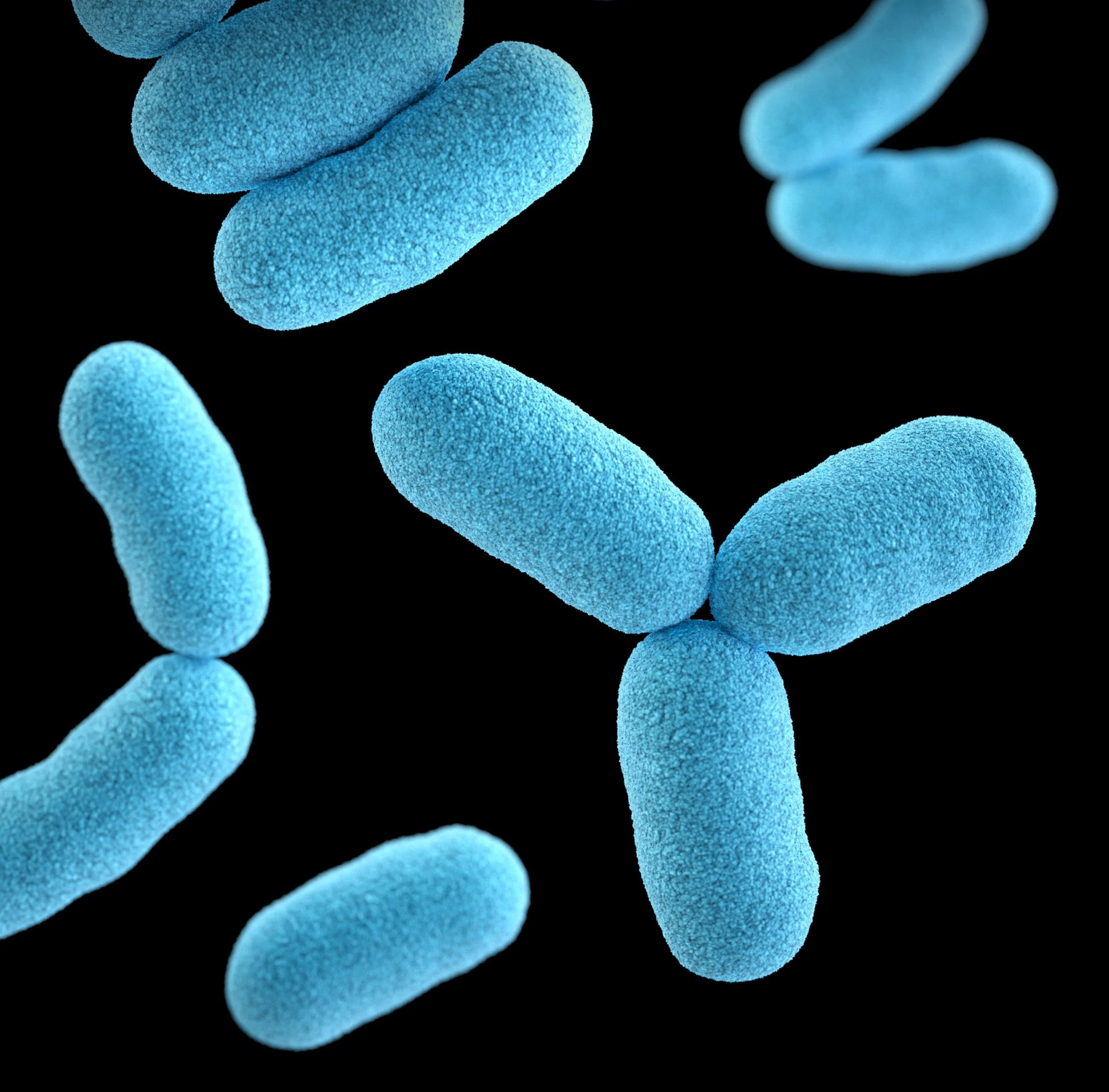Boost Your Health: The Power of Balanced Diet, Probiotics, and Lifestyle Changes
When most people think of probiotics, they often associate it with digestive health. However, in recent times, scientists have discovered that probiotics have a significant impact on our mental and physical health. Regular consumption of probiotics can improve immunity, help with digestion, and may even reduce anxiety and depression symptoms. In this blog, we will discuss the benefits of probiotics and how they can contribute to a healthy mind and body.
Boost Your Immunity
Did you know that a significant amount of your immune cells are located within your gut? Probiotics help to increase the production of antibodies that fight off infections, increase the activity of immune cells, and help heal the gut mucosal lining. Regular consumption of probiotics can lead to better health, fewer sick days, and overall wellbeing.
Probiotics have also been studied for their potential role in preventing and alleviating upper respiratory infections; incorporating probiotic strains could potentially reduce the severity and duration of these infections, fostering a healthier respiratory system.
Live microorganisms, when consumed in adequate amounts, have a positive effect on the health of individuals by maintaining a balanced gut microbiome, which is linked to improved digestion, enhanced immunity, better mood regulation, and overall well-being.
Health Benefits of Daily Probiotic Consumption
Incorporating probiotics into your daily routine offers an array of health benefits. These friendly bacteria have been found to enhance nutrient absorption, aiding in optimal functioning of the body. Probiotics also play a crucial role in maintaining a healthy balance of gut flora, which is essential in preventing diseases such as Irritable Bowel Syndrome (IBS), Inflammatory Bowel Disease (IBD), and certain types of skin conditions. Moreover, daily consumption of probiotics helps in keeping cholesterol levels in check and may aid in weight loss. They also contribute to mental health, potentially alleviating mood disorders and enhancing cognitive function.
Early childhood is a critical period for the development of gut bacteria, and maintaining a healthy gut microbiome during this phase can contribute significantly to a child's overall health, development, and well-being.
An unhealthy or "leaky" gut could potentially lead to numerous health problems, including chronic inflammation, autoimmune diseases, mental health issues, and an increased risk of heart diseases and certain cancers.
Improve Digestion
Probiotics are known for aiding in digestion. They help keep a healthy balance of good bacteria in the gut that aids in breaking down food and absorbing essential nutrients. This may also help alleviate common digestive issues like bloating, constipation, and diarrhea.
Specific probiotic strains, such as Lactobacillus and Bifidobacterium, have been shown to promote a healthy digestive system, effectively regulating bowel movements and offering relief from gastrointestinal distress.
A well-balanced digestive tract, abundant with good gut bacteria, is pivotal in maintaining overall health, aiding in efficient nutrient absorption, strengthening the immune system, and even influencing mood and mental processes.
Gut bacteria, specifically the beneficial probiotic strains, play a critical role in nutrient absorption, enabling the efficient uptake of vital nutrients from the food we consume, thereby ensuring optimal health and well-being.
Ulcerative colitis, a type of inflammatory bowel disease, can potentially be managed by the incorporation of probiotics in the diet, as they can help maintain a healthy gut flora balance and reduce inflammation in the intestinal lining.
Individuals with Crohn's disease may benefit from incorporating the probiotic strain Saccharomyces boulardii into their diet, as this yeast-based probiotic has been associated with reducing inflammation and promoting gut health, potentially alleviating symptoms associated with this condition.
Mental Health
Studies have shown a correlation between gut health and mental health. When our gut microbiome is balanced, we are more likely to have better mental health. Probiotics may help to reduce symptoms of anxiety and depression, leading to improved mental health and wellbeing.
The probiotic bacteria produce neuroactive compounds, such as tryptophan and gamma-aminobutyric acid (GABA), that can help regulate mood and reduce stress. Regular intake of probiotics may also help to reduce the production of inflammation-causing cytokines, thereby reducing symptoms of depression and anxiety.
In addition, research has indicated that consuming probiotics can help to improve communication between the gut and brain, helping to regulate emotions more effectively.
Women's Health
The correlation between gut health and women's health, particularly with respect to fertility and menopausal changes, is increasingly recognized. A balanced gut microbiome is essential for optimal hormonal balance, which is crucial for women's fertility. Disruptions to the gut microbiota could potentially lead to irregular menstrual cycles and even fertility issues. On the other hand, as women transition into menopause, hormonal fluctuations can affect gut health, potentially leading to digestive discomfort or issues such as bloating and constipation. Regular consumption of probiotics can aid in maintaining a balanced gut microbiome during this phase, thereby aiding in managing menopausal symptoms and improving overall well-being.
Probiotics are also beneficial for other aspects of women's health such as the prevention of urinary tract infections (UTIs) and vaginal yeast infections. Probiotic bacteria help to maintain a balance between good and bad forms of bacteria in the body, reducing the risk of developing these conditions. In addition, probiotics have been found to improve both oral and skin health in women. Regular consumption of probiotics may help to reduce the risk of dental caries, gingivitis, and acne.
Promote Heart Health
Probiotics are especially effective in reducing cholesterol levels by breaking down bile in the gut. This may have a positive impact on heart health and improve overall cardiovascular function. Additionally, probiotics may help to reduce blood pressure by producing substances that act as natural vasodilators.
Moreover, research suggests that consuming probiotic-rich foods and supplements can prevent the thickening of arteries caused by fatty deposits. This helps to reduce the risk of heart attack and stroke. In older adults, maintaining heart health becomes particularly critical, and regular consumption of probiotics might contribute to cardiovascular well-being by managing cholesterol levels and blood pressure.
Incorporating probiotics into our regular diet not only promotes gut health but can also aid in weight loss and improve cardiovascular health. These benefits create a powerful combination that contributes to overall well-being. With the growing prevalence of health issues in our fast-paced world, adding probiotics to our diet can be an effective strategy to boost our overall health, strengthen our immune system, and potentially reduce the risk of various diseases.
Alleviate Skin Issues
It is not commonly known that probiotics can help reduce skin inflammation caused by conditions like acne, eczema, or rosacea. The good bacteria in probiotics can help balance the gut, thus reducing inflammation and promoting healthy skin.
Identifying triggers for allergic reactions is crucial. Probiotics can help reduce the risk of triggering and minimize symptoms. Recent studies have indicated a potential link between gut health and atopic dermatitis, suggesting that an imbalance in the gut microbiota may exacerbate symptoms of this skin condition, pointing the way toward probiotics as a potentially beneficial treatment option.
The large intestine, through its role in gut health, has a significant influence on skin health; any imbalance in gut microbiota can manifest externally as skin issues, thereby highlighting the intrinsic link between the health of our gut and our skin.
Fermented foods and probiotic supplements
Foods that have undergone fermentation are abundant in probiotics, which contain a wide variety of live microorganisms that can improve our digestive health. Examples include yogurt, kefir, sauerkraut, kimchi, and kombucha, among others. These foods undergo a fermentation process that encourages the growth and proliferation of good bacteria, also known as probiotics. In addition to fermented foods, certain high-fiber foods like whole grains, bananas, onions, brown rice, garlic, and leeks can act as prebiotics, providing nourishment for these beneficial bacteria.
Consuming a diet enriched with both probiotics and prebiotics can have positive effects on our health, aiding digestion, boosting immunity, and even potentially reducing the risk of certain diseases. By fostering a balanced gut microbiota, these foods can serve as a vital component of a healthy lifestyle.
Probiotic supplements, available in various forms such as capsules, tablets, and powders, are another source of these beneficial microorganisms, offering a convenient and efficient way to ensure a daily intake of probiotics to support a balanced gut microbiota and overall health.
Dietary supplements
Many dietary supplements that aim to promote gut health contain both probiotics and prebiotics. Probiotic supplements introduce helpful bacteria into the digestive system, while prebiotic supplements provide the necessary nutrients for these bacteria to thrive. Some popular options for gut health include supplements that contain Lactobacillus and Bifidobacterium strains of bacteria, which have undergone extensive research for their health benefits. However, it's important to keep in mind that supplements should not replace a balanced diet. It's recommended to consult with a healthcare professional before beginning any new supplement regimen to ensure safety and effectiveness. Supplements can work together with a diet rich in fiber, fermented foods, and a variety of fruits and vegetables to maintain gut health.
For those interested in a quality probiotic supplement, here is an option on Amazon. Backed by positive customer reviews, this product can be a great addition to your daily health regimen. Remember, your gut health matters, and choosing the right supplement can make all the difference!
As an Amazon Associate, I earn from qualifying purchases. This means that whenever you buy a product through the links provided in this document, I receive a small commission at no extra cost to you. This helps me maintain and continue to provide valuable health and wellness information. Thank you for your support!
Conclusion
Maintaining a balanced and healthy diet is vital for overall well-being. It not only positively impacts digestion and immunity but also plays a significant role in promoting healthy skin. To achieve this balance, it is recommended to include probiotics and prebiotics in your daily diet.
However, diet is just one aspect of achieving good health. Regular exercise, sufficient rest, and a positive mindset are also essential for optimal well-being. Before making any significant changes to your diet or lifestyle, it is essential to consult with healthcare professionals.
By incorporating small, sustainable changes such as adding probiotic-rich foods to your daily meals, you can enhance your overall well-being and create a healthier future. Remember these tips to make more mindful choices, develop better habits, and improve your quality of life.








